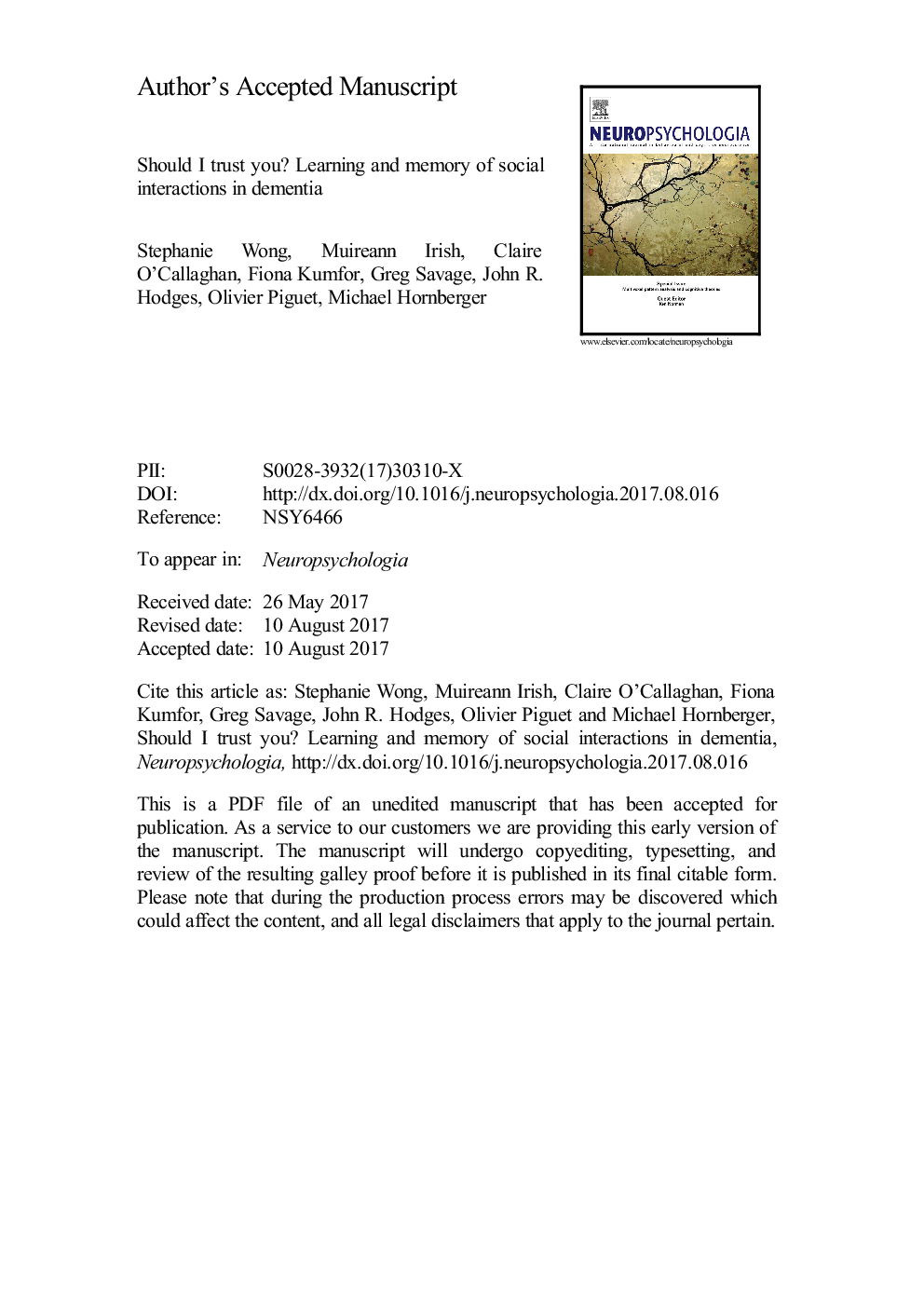ترجمه فارسی عنوان مقاله
آیا باید به شما اعتماد کنم؟ یادگیری و حافظه تعاملات اجتماعی در زمینه دمانس
عنوان انگلیسی
Should I trust you? Learning and memory of social interactions in dementia
| کد مقاله | سال انتشار | تعداد صفحات مقاله انگلیسی |
|---|---|---|
| 113300 | 2017 | 47 صفحه PDF |
منبع

Publisher : Elsevier - Science Direct (الزویر - ساینس دایرکت)
Journal : Neuropsychologia, Volume 104, September 2017, Pages 157-167
ترجمه کلمات کلیدی
بیماری آلزایمر، فراموشی پیشانی گیجگاهی، حافظه، شناخت اجتماعی، اعتماد به نفس، استثمار مالی،
کلمات کلیدی انگلیسی
Alzheimer's disease; Frontotemporal dementia; Memory; Social cognition; Trust game; Financial exploitation;

